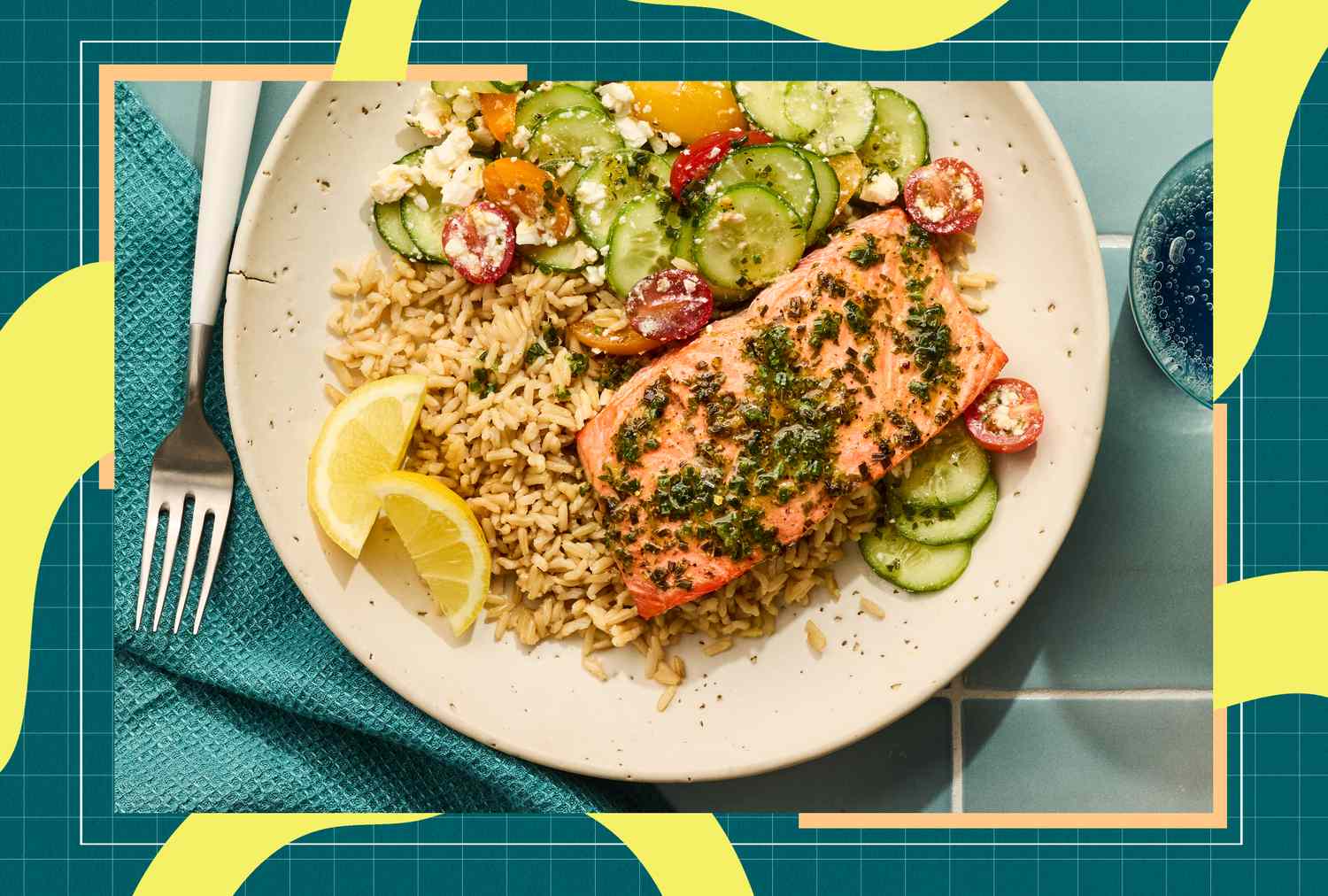Blog
These Foods May Lower Liver Cancer Risk

- Diets rich in vegetables, legumes, whole grains, and omega-3s (like fish) may reduce liver cancer risk.
- Reducing processed meats, sugary beverages, saturated fats, and alcohol is crucial for liver health.
- The Mediterranean diet, focused on plant-based foods and healthy fats, has shown protective effects for liver cancer.
Hepatocellular carcinoma (HCC) is the most common type of liver cancer, making up more than 80% of cases worldwide and being the sixth most common cancer and the third leading cause of cancer-related deaths. Major risk factors include having metabolic dysfunction-associated steatotic liver disease (MASLD). MASLD, previously called non-alcoholic fatty liver disease, is linked to fat buildup in the liver and other metabolic issues.
Conditions like elevated cholesterol, diabetes and high blood pressure may increase your MASLD risk. With MASLD-related hepatocellular carcinoma cases expected to rise significantly, focusing on modifiable factors like diet and lifestyle could play a key role in prevention. Because of this, researchers conducted a review of the available data to determine links between dietary habits and liver cancer risk, and the results were published in Narrative Review.
How Was This Study Conducted?
To conduct this study, researchers used reports from the International Agency for Research on Cancer (IARC) and the 2018 World Cancer Research Fund (WCRF)/American Institute for Cancer Research (AIRC), to identify foods, dietary components, and contaminants that may increase the risk of liver cancer, specifically hepatocellular carcinoma. To dig deeper, the researchers searched a medical research database for studies on certain foods and their connection to hepatocellular carcinoma, focusing on high-quality reviews and analyses.
The strength of the link between each dietary factor and hepatocellular carcinoma was evaluated based on the quality of the research.
What Did This Study Find?
Certain foods and nutrients were found to influence the risk of developing liver cancer. For example, aflatoxins (toxins from fungi in contaminated food) and alcohol are strongly linked to an increased risk, while coffee likely lowers the risk, and fish may have a limited protective effect.
The researchers also addressed several more key findings for particular foods. Let’s break them down.
Meat
When it comes to meat, while The International Agency for Research on Cancer (IARC) has classified processed meats (like bacon and sausage) as cancer-causing to humans and red meats (like beef and pork) as probably cancer-causing, the researchers reported that there wasn’t strong evidence linking overall meat consumption to liver cancer specifically.
The researchers reported that, based on data they evaluated, people who eat white meat have a 24% lower risk of hepatocellular carcinoma, and those who eat fish have a 9% lower risk of developing hepatocellular carcinoma. On the other hand, eating processed meat was linked to a 20% higher risk of liver cancer. No clear link was found between liver cancer risk and eating red meat or total meat overall.
Fat
Researchers found no clear link between overall fat intake and hepatocellular carcinoma, and there wasn’t enough evidence to say whether a low-fat diet helps mitigate cancer risk. However, eating more omega-3 fatty acids, like those in fish and flaxseeds, may be linked to a 51% reduced risk of liver cancer.
On the flip side, eating more saturated fats was linked to a 34% higher risk of liver cancer. No strong connections were found for other types of fats.
Carbohydrates
There was no clear evidence linking carbohydrate intake to hepatocellular carcinoma risk. Similarly, there wasn’t quite enough proof to draw conclusions about glycemic index, or how quickly foods raise blood sugar.
But some studies suggest that drinking sugar-sweetened beverages might double the risk of liver cancer, though other research found no such link.
Cereals, Vegetables, Fruit, Pulses and Grains
Besides the link between aflatoxins, or toxins from mold in contaminated grains and nuts, being strongly linked to a higher risk of liver cancer, there was no clear evidence connecting cereals, fruits, vegetables or vitamin C to liver cancer risk. The researchers noted that there wasn’t much research to rely on for those connections. Some studies do suggest that eating more vegetables may lower the risk, though no significant link was found for fruits. A Chinese study hinted that tomatoes might reduce liver cancer risk, but further research found no connection to lycopene, a nutrient in tomatoes.
Whole grains and fiber, particularly from grains and fruits, appear to offer protection. Regular fiber intake is associated with a 34% lower risk of liver cancer, with every 50 grams of daily fiber reducing the risk by 23%. Legumes, such as beans and lentils, may also lower the risk by 14%, with benefits seen at 8 to 40 grams per day. However, no significant links were found for refined grains or nut consumption.
Micronutrients
Certain antioxidant nutrients may help lower the risk of liver cancer. For example, vitamin E, folate, β-carotene and manganese have been linked to a reduced risk of liver cancer. On the other hand, people with low vitamin D levels may have more than double the risk of liver cancer. Additionally, higher levels of vitamin D in the blood were associated with a 47% lower risk of liver cancer.
Dietary Patterns
The Mediterranean diet, while not directly linked to reducing hepatocellular carcinoma risk, has strong evidence supporting its role in preventing weight gain, which may indirectly lower liver cancer risk. Higher adherence to the Mediterranean diet was associated with a 32% lower risk of liver cancer after adjusting for factors like body mass index, diabetes, and smoking.
Other diets, such as the DASH diet and Healthy Eating Index, also showed protective effects, but the Mediterranean diet had the strongest and most consistent results. Additionally, vegetable-based diets were linked to a lower risk of liver cancer, while Western-style diets (high in processed foods and sugar) were associated with an increased risk.
Limitations and Considerations
This study highlights important links between dietary habits and liver cancer risk, but comes with several limitations. The role of diet in modulating hepatocellular carcinoma risk is still not well understood, and the findings rely heavily on systematic reviews and meta-analyses, which may exclude newer or smaller studies and introduce publication bias. Additionally, the complexity of dietary patterns and interactions between nutrients makes it challenging to isolate the effects of individual components.
Factors like physical activity, socioeconomic status and access to healthcare may also confound the results, making it difficult to attribute risk solely to diet. Moreover, the lack of long-term interventional studies and limited exploration of emerging dietary patterns, such as intermittent fasting, leave gaps in understanding the broader implications of diet on HCC risk.
How Does This Apply To Real Life?
With liver cancer being one of the most common and deadly cancers worldwide, understanding how diet and lifestyle play a role is crucial. Making certain food choices, like eating more vegetables, legumes, whole grains and omega-3-rich foods like fish, may help lower your risk. Incorporating foods rich in omega-9 monounsaturated fats (MUFAs) and omega-3 polyunsaturated fats (PUFAs) is also beneficial for liver health, as the authors note. That means snacking on foods like olives, avocados, almonds and hazelnuts can offer some benefits for your liver health.
Cutting back on processed meats, sugar-sweetened beverages, saturated fats and alcohol is equally important. Additionally, adopting dietary patterns like the Mediterranean diet, which emphasizes whole, plant-based foods and healthy fats, has shown promise in reducing liver cancer risk indirectly by preventing weight gain and improving metabolic health.
Making some tweaks to your diet can be a slow and steady process—you don’t have to overhaul everything at once. Consider including a few Mediterranean diet meals in your routine each week, if you aren’t already. Even simple suppers like our No-Cook White Bean & Spinach Caprese Salad and this 20-minute Vegan Coconut Chickpea Curry can be easy picks to add plenty of veggies and flavor to your day.
Our Expert Take
This study published in Narrative Reviews sheds light on the important connection between dietary habits and the risk of developing liver cancer (hepatocellular carcinoma), particularly in the context of rising cases linked to metabolic disorders like MASLD. The findings suggest that making certain food choices such as increasing intake of vegetables, legumes, whole grains and omega-3-rich foods like fish may play a role in reducing HCC risk. At the same time, limiting processed meats, sugar-sweetened beverages, saturated fats, and alcohol is crucial. Additionally, the study highlights the importance of limiting exposure to aflatoxins, toxic substances found in contaminated foods like cereals, maize, rice, nuts, and spices.
By making small, intentional changes to your diet and lifestyle, you can take meaningful steps to protect your liver and overall health. Remember, every small positive choice, whether it’s adding more veggies to your plate, swapping a cocktail for a mocktail or enjoying fish as a protein choice, each decision brings you closer to a healthier future.












